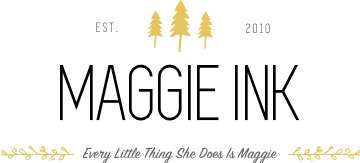There’s a popular Egyptian proverb: “Baynaatna, khobz wa milah.”
Between us, bread and salt.
It means that if I break bread with you, I trust you. We have shared our traditions, we have nourished ourselves at the same table, we have been seated side by side — and so, there will be no fighting between us.
As violence raged in Egypt, with protestors all over the country demanding the resignation of President Hosni Mubarak, I was in desperate need of a little bread and salt. Though I was far from any danger, hunkered down in the little Red Sea town of Dahab, I was incredibly worried about gas, food, water and money shortages, and I was skeptical about my chances of leaving the country if the situation got worse. The government had already cut off the internet, there was little news coming our way, and the U.S. Embassy was absolutely no help. The lack of information was downright scary, and I didn’t know if it was safer for me to stay or go.
So on Sunday, I paid a Bedouin man to drive me out of there. He took me from Dahab up to the northern port town of Nuweiba. I was disoriented, upset, frightened.
The Bedouin man gave me food. It was what he could find and afford — hot dog buns, potato chips, fruit cocktail — and it was a feast, considering the circumstances. Before he left me for the night, he gave me a package of chocolate cookies and instant Nescafe coffee, a gift of nourishment for the journey ahead.
The next morning, I woke up in a seaside hut. I was cold, hungry, lonely. I was fretting about the ferry that was supposed to take me from Red Sea into Jordan. The stress made my stomach hurt.
Then another Bedouin man took me out for a typical Egyptian breakfast — fries, falafel, pita bread and fuul, a slow-cooked paste made from fava beans, tomatoes, onion, spices and swirls of tahini.
Sitting in a nameless cafe, I shared hot falafel with strangers and received sustenance that went far beyond the food.
Between us, bread and salt.
I’m not positive, but it might have been the best meal of my life.
To make your own Egyptian breakfast, try this falafel recipe — and then share it with someone.
Ingredients:
- 1 cup dried chickpeas or 16 oz. can of chickpeas or garbanzo beans.
- 1 large onion, diced
- 2 cloves of garlic, chopped
- 3 tablespoons of fresh parsley, chopped
- 1 teaspoon coriander
- 1 teaspoon cumin
- 2 tablespoons flour
- Salt
- Pepper
- Oil for frying
Directions:
Mash chickpeas enough to mix ingredients together. You can also combine ingredients in a food processor. The result should be a thick paste.
Form the mixture into small balls, about the size of a golf ball. Slightly flatten.
Fry in two inches of oil at 350 degrees until golden brown, about 5-7 minutes.
Serve hot with tahini sauce, hummus or stuffed inside a pocket of warm pita.




No Comments